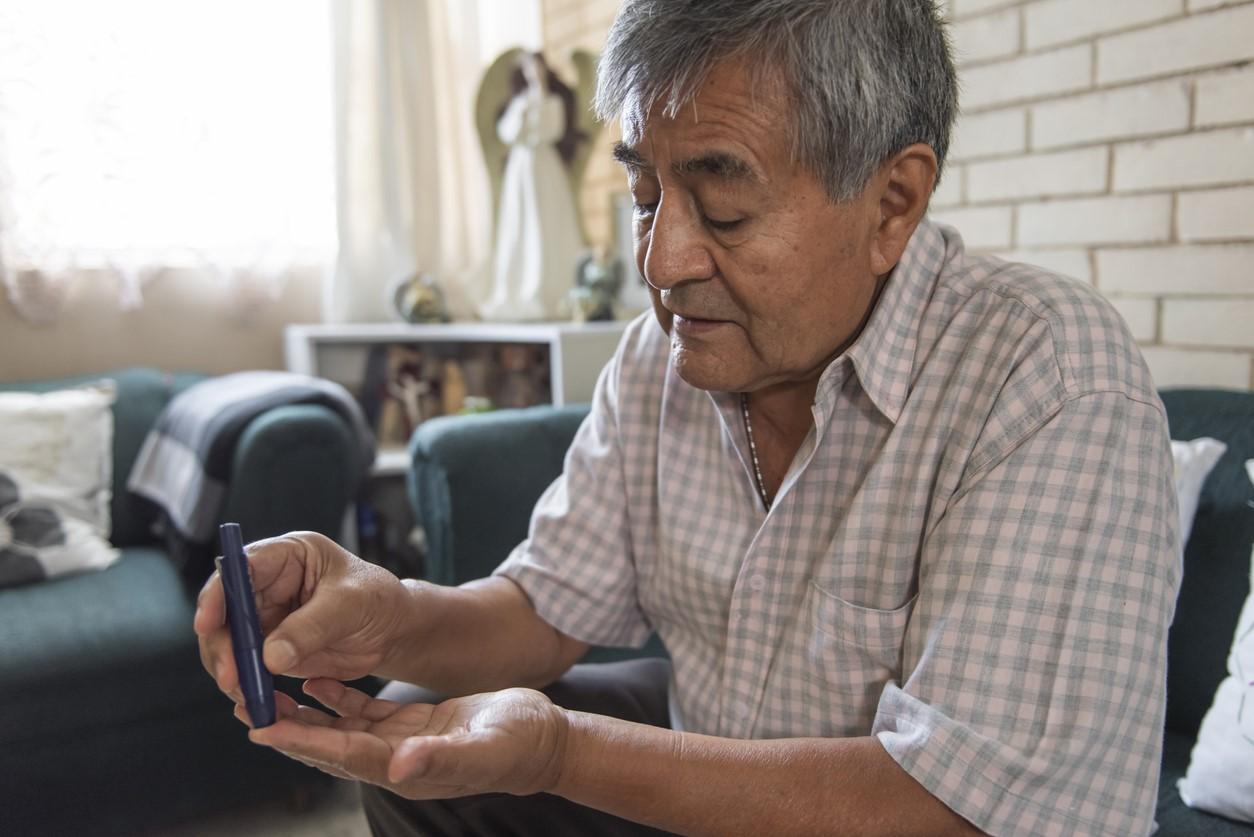A pair of new studies conclude that, compared with their never-infected peers, COVID-19 Omicron survivors may be at a 60% or greater risk of new-onset type 1 or 2 diabetes, a potential precursor of heart attack and stroke.
COVID may act as disease accelerator
Today in JAMA Network Open, researchers from Cedars Sinai Medical Center in Los Angeles and Brigham and Women's Hospital in Boston estimate the likelihood of new-onset diabetes, high blood pressure (hypertension), and abnormal cholesterol levels (hyperlipidemia) in the first 90 days before and after COVID-19 diagnosis. Average patient age was 47.4 years.
The team compared the odds of a new cardiometabolic diagnosis with those of non–COVID-related benchmark diagnoses of urinary tract infection or gastroesophageal reflux (commonly known as heartburn) among 23,709 COVID-19 survivors from March 2020 to June 2022.
Rates of incident diabetes, hypertension, hyperlipidemia, and the two benchmark diagnoses were higher than those before COVID-19. The highest postinfection odds were for diabetes (odds ratio [OR], 2.35), followed by hypertension (OR, 1.54), the benchmark diagnoses (OR, 1.42), and hyperlipidemia (OR, 1.22).
After adjustment, the risk of new-onset diabetes versus benchmark diagnosis after COVID-19 infection was elevated significantly (OR, 1.58, or a 58% higher risk), but the risks of hypertension and hyperlipidemia weren't.
Although postinfection diabetes risk was higher among unvaccinated participants (OR, 1.78) than among their vaccinated counterparts (OR, 1.07), the interaction between vaccination and diabetes diagnosis was not statistically significant (OR, 0.59).
There was no evidence to support interaction by age, sex, or existing cardiovascular risk factors, including hypertension or hyperlipidemia. Age, sex, and timing of index infection to Omicron predominance were not linked to increased risk of a new cardiometabolic diagnosis before or after infection.
"Mechanisms contributing to postinfection diabetes risk remain unclear, although persistent inflammation contributing to insulin resistance is a proposed pathway," the authors wrote.
In a Cedars-Sinai news release, senior author Susan Cheng, MD, MPH, said that data trends and patterns suggest that COVID-19 may act as a disease accelerator, amplifying the risk of an illness that may have come later in life. "So, it could be that instead of being diagnosed with diabetes by age 65, a person with preexisting risk for diabetes might—after a COVID-19 infection—be more likely to develop diabetes by age 45 or 55."
Mechanisms contributing to postinfection diabetes risk remain unclear, although persistent inflammation contributing to insulin resistance is a proposed pathway.
Lead author Alan Kwan, MD, said the results suggest that pre-COVID vaccination may protect against diabetes risk. "Although further studies are needed to validate this hypothesis, we remain steadfast in our belief that COVID-19 vaccination remains an important tool in protecting against COVID-19 and the still-uncertain risks that people may experience during the post-infection period," he said.
66% greater risk of new diabetes diagnosis
A Penn State meta-analysis published in Scientific Reports included eight studies on new-onset type 1 or 2 diabetes in COVID-19 survivors published from December 2019 to October 2022. The studies included 4,270,747 COVID-19 patients and 43,203,759 uninfected controls with a median age of 43 years.
COVID-19 was tied to a 66% higher risk of new-onset diabetes (risk ratio [RR], 1.66]), regardless of age, sex, or study quality. But when the studies were stratified according to geographic region, the diabetes risk was higher in US studies (RR, 1.77) than in those from Europe (RR, 1.33).
"Given the extraordinary number of COVID-19 survivors globally, the modest increase in diabetes risk could correspond to a drastic rise in the number of people diagnosed with the disease worldwide," the researchers wrote.
In a Penn State news release, lead author Paddy Ssentongo, MD, PhD, said the study can't definitely conclude that COVID-19 causes diabetes and that more research on the biological cause is needed.
Given the extraordinary number of COVID-19 survivors globally, the modest increase in diabetes risk could correspond to a drastic rise in the number of people diagnosed with the disease worldwide.
"But we know that other viruses like mumps virus, rotavirus and cytomegalovirus are associated with the development of diabetes, so it's not implausible that SARS-CoV-2, which has been shown to affect multiple systems in the human body, can also do the same," he said.
Senior author Djibril Ba, PhD, MPH, said, "It is important that survivors and their health care providers are aware of this trend so they can be on the lookout for development of diabetes."
The team called for future research into the social determinants of health tied to diabetes so effective public health and management strategies could be implemented. It's possible, they added, that genomics data could help identify the COVID-19 survivors most at risk of new-onset diabetes.




















